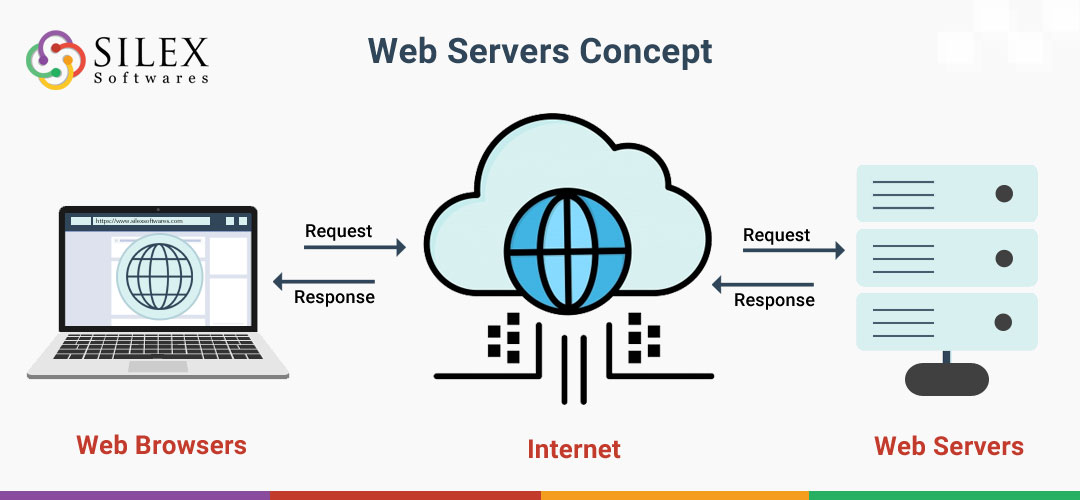A web server is a computer that receives and processes user requests to access websites. A web server’s hardware gives it data processing power while the software running the machine’s operating system determines which site to offer in response to a request.
Web servers use various protocols to respond to client requests- HTTP, HTTPS, SMTP and FTP etc. HTTP is the most popular one, which stands for Hypertext Transfer Protocol. Its secure variation is HTTPS.
In essence, web servers facilitate data hosting for websites and web-based applications.
Why Do We Use a Web Server?
Web servers have three primary uses:
- Host a couple of websites or internet applications.
- Upload and download files with FTP
- Send and receive emails.
How Does A Web Server Work?
Web servers follow a client-server model. The server processes requests and then sends data to the client.
The process of a web server consists of 4 steps.
- Obtaining the IP Address from the domain name: A web browser first gets the IP address from the domain name; for example, this page’s domain name is www.silexsoftwares.com. The web browser can obtain the IP address in two ways:
- Searching for its cache.
- Requesting DNS (Domain Name System) servers.
- Browser Requests the Complete URL: Once we know the IP address, it takes less than a second for the browser to request the entire URL from the server.
- The web server responds to the request: when browsers request a page from a web server, it sends the requested page back. If the page doesn’t exist or there is an error, the server sends the appropriate error message.
- The browser displays the web page: The browser displays the page that the user requested, and if the internet web page is no longer reachable for some reason, the appropriate error message is displayed.
Popular Web Servers
Many internet servers are available, like Apache HTTP Server, Microsoft Internet Information Services (IIS), Nginx Web Server, and Lighttpd Web Server. However, the most popular ones are Apache HTTP Server and Microsoft Internet Information Service.
Summarizing it all, to host websites worldwide, one must have a web server, a leased internet connection, and an external DNS server.

